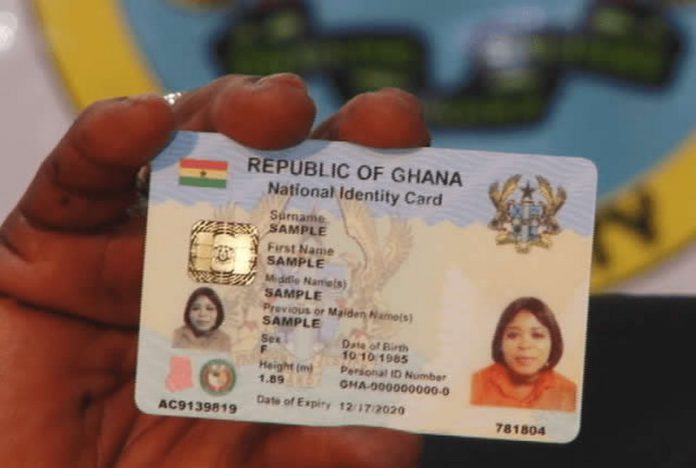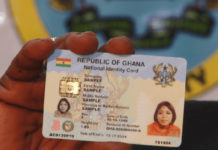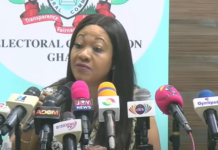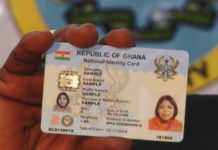
Chairperson of Ghana’s Electoral Commission, Jean Mensa, has insisted that the electoral body’s proposed constitutional instrument seeking to make the Ghana Card the sole voter registration document is not aimed at disenfranchising Ghanaians.
Speaking to the media at the EC’s head office on Friday, Jean Mensa disclosed that the Commission is not interested in continuing the guarantor system, which she said has outlived its usefulness, hence the decision to adopt the Ghana card as the sole identification document to vote.
Jean Mensa further explained that the use of Ghana Card is the surest way to ensure the integrity of Ghana’s electoral roll.
“With regards to the CI that is before Parliament, we do not intend to put back the guarantor system because we do not believe that the guarantor system has worked for us. Thirty years ago when we took this journey, and we did not have a Ghana Card, it was only proper that we adopt a system that would ensure that people who didn’t have any documentation could register and thirty years on, we now have the Ghana Card, and we must rely on it, and it is the surest way to ensure the integrity of our register.”
She argued that the proposed CI currently before Parliament was inspired by the Commission’s determination to “conduct credible, transparent, fair and peaceful elections,” which was borne out of the flaws the Commission encountered during the registration period in 2020.
“As a commission that is determined to conduct credible, transparent, fair and peaceful elections, we were keen to establish and uphold the integrity of the foundational document which is the voters’ register, hence our proposal to use the Ghana Card as the sole document for identification of a person’s citizenship and or age.”
“Our experience with the 2020 Registration Exercise showed that several minors and foreigners using the window of the guarantor system found their way onto our roll. To rid the register of minors and foreigners in 2020, the Electoral Commission established the District Registration Review Committees (DRRCS) which worked for several weeks to delete the names of minors and foreigners from the Register. It took substantial time and effort to expunge the names of illegal persons from our [electoral] roll. We challenged some 40,000 minors and foreigners and expunged some 15,000 persons from the Register.”






